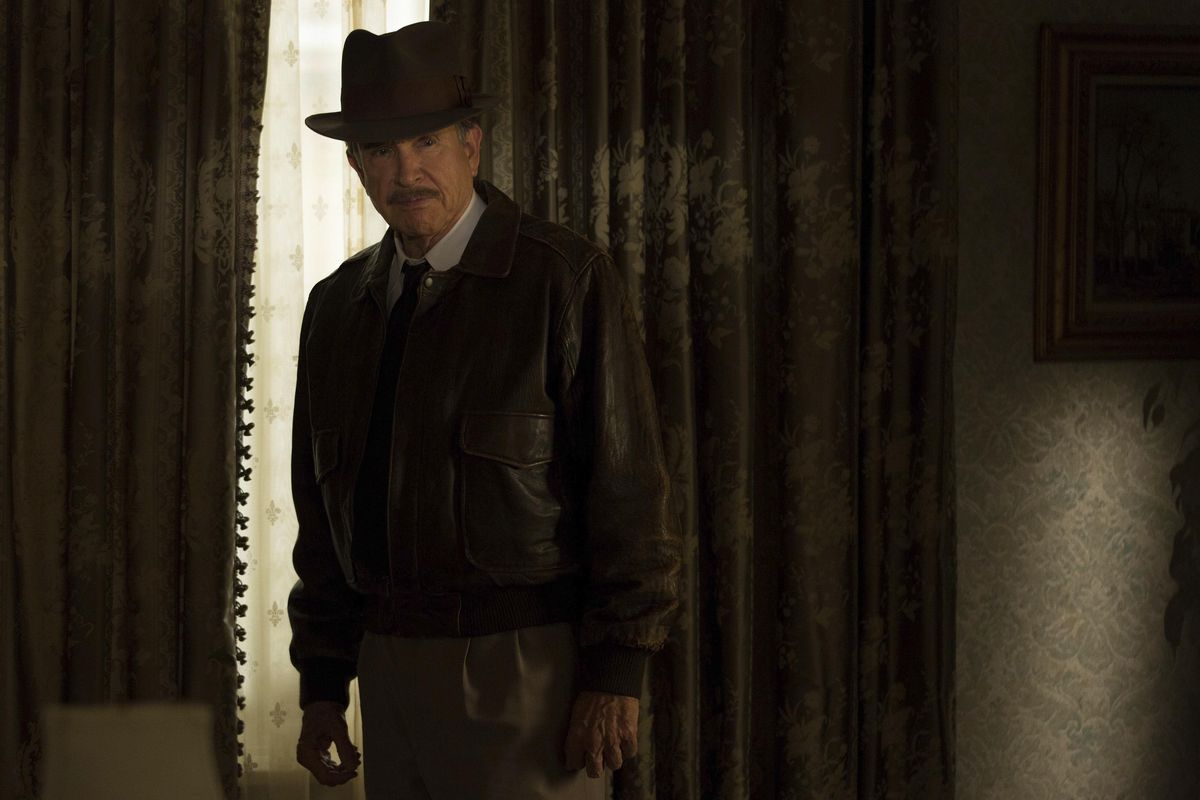Review: Warren Beatty’s return falls flat in ‘Rules Don’t Apply’

“Rules Don’t Apply” has been a long time coming. Warren Beatty first started gathering research for his passion project about eccentric tycoon Howard Hughes decades ago.
That should not necessarily prompt high hopes for the film – but how can it not? The Hollywood legend has not directed a movie in 18 years, since “Bulworth,” or starred in one in nearly as long.
So it gives a critic no pleasure to report that, though it’s a treat to see Beatty back on the big screen playing Hughes, “Rules Don’t Apply” is hardly the masterpiece that the long wait might imply.
Beatty has been adamant that this is not “a Howard Hughes movie,” which is partially true but also misleading. At first, the movie’s main concerns are young chauffeur Frank Forbes (Alden Ehrenreich) and fresh-faced actress Marla Mabrey (Lily Collins). The year is 1959, and both are on Hughes’ payroll. But neither will have the dubious pleasure of meeting the infamous recluse for quite some time.
Marla just moved to Hollywood, and Frank is tasked with driving her around. She is a virginal Baptist beauty queen who says things like “Oh, my stars!” It doesn’t take long for Frank to fall for her, even though his contract strictly forbids fraternizing with the talent. Pretty soon, he is letting her behind the wheel of the company car, and she is serenading him with songs she wrote.
So far, so screwball – even if the pacing is off. The movie’s early scenes are distractingly short, as if Beatty wanted to squeeze in all of his material in a hurry. Every scene ends with some wry line, usually uttered by Annette Bening as Marla’s finger-wagging mother. But the editing is so breakneck that there is never time for the jokes to fully land.
The rush slows about a half-hour in, and the film finds its rhythm, if only for a moment, as the two charismatic leads dazzle the audience with their bright repartee. Then Beatty appears. Marla and Frank finally meet Hughes, and his presence in their lives complicates their burgeoning relationship.
Partly that is because Frank becomes one of Hughes’ most trusted lackeys. He’s part of a team of yes men, willing to cater to the magnate’s every whim, even when that means ordering 350 gallons of banana nut ice cream with no place to store it.
Hughes’ paranoia and obsessive-compulsive behavior is mostly played for laughs. He spends the remainder of the movie figuring out ways to avoid being seen and thwarting unseen forces he is convinced want to have him institutionalized.
If Beatty was not trying to make a movie about Hughes, he utterly failed, because the love story of Frank and Marla is more like a framing device – a gateway drug to get the audience into the theater so that Beatty can chew some scenery. Even so, he chews it quite well: He giggles like a kid when he is allowed to fly a plane and becomes dour or defiant when he talks about his father. One lesson of the story is that you can, apparently, never be too old to have daddy issues.
The film certainly evokes the late 1950s and early ’60s, between the set and costume design and Caleb Deschanel’s impressive cinematography, which includes hazy, colorful glimpses of Los Angeles that could have been plucked from classic movies. But none of the visual flourishes can make up for the way the story sags in its final stretch. By that point, Marla has disappeared and the focus turns to Frank, who spends his days trying to placate a needy and mercurial boss.
So much for the love story. The truth is that “Rules Don’t Apply” is nothing if not a Howard Hughes movie, and you can see why Beatty fought the designation. It’s the least interesting part of the story.